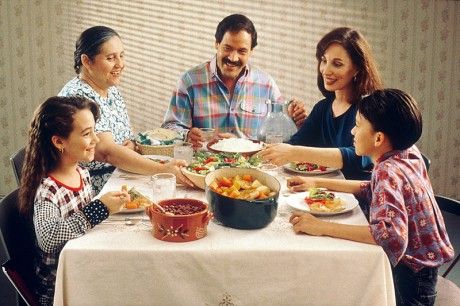The first story comes from South Carolina, where a mother was jailed and charged with "unlawful conduct toward a child" for . . . leaving her 9-year-old daughter alone to play in a park. Lenore Skenazy of "Free Range Kids" comments:
Here are the facts: Debra Harrell works at McDonald's in North Augusta, South Carolina. For most of the summer, her daughter had stayed there with her, playing on a laptop that Harrell had scrounged up the money to purchase. (McDonald's has free WiFi.) Sadly, the Harrell home was robbed and the laptop stolen, so the girl asked her mother if she could be dropped off at the park to play instead.We could also lump this one in with a third theme, the criminalization of poverty. The next, very similar story comes from Blanchester, Ohio.
Harrell said yes. She gave her daughter a cell phone. The girl went to the park - a place so popular that at any given time there are about 40 kids frolicking - two days in a row. There were swings, a "splash pad," and shade. On her third day at the park, an adult asked the girl where her mother was. At work, the daughter replied.
The shocked adult called the cops. Authorities declared the girl "abandoned" and proceeded to arrest the mother.
What started out as a normal Sunday morning for Jeffrey Williamson of Blanchester, Ohio, turned into a nightmare when police officers showed up to his front door and arrested him in front of his family. His crime? Child endangerment - as the authorities described it - because his son skipped church to go play with friends. He now faces up to six months in jail.Next we go to Tennessee, the most recent state to make it a felony to use illicit substances while pregnant.
According to Williamson, the local Woodville Baptist Church sends a van to his neighborhood twice a week to offer free transportation to those interested in attending services. Williamson's children ride the van regularly on Wednesdays and Sundays. This morning was no different, as his eight-year-old son Justin and siblings said goodbye to their father and left their house to board the van.
One problem: Justin skipped church and went to play instead.
The young boy stayed in the neighborhood to play with friends and then later ended up at the local Family Dollar store down the road. After police officers were called to the store by a customer who recognized Justin, they took him back to his neighborhood where they proceeded to arrest his father for child endangerment.
Williamson recounted his interaction with the police officer, stating, "The next thing you know, he comes up to me and he says, 'You're under arrest.' My kids start crying their eyes out wondering why I'm getting arrested."
To make matters worse, as a result of local news coverage of the event, Williamson was fired from his job and remained unemployed for a period of time.
A Tennessee woman is the first to be charged under a new state law that specifically makes it a crime to take drugs while pregnant, calling it "assault."This story is a obviously a little different than the others. But if the law and arrest dissuade other pregnant addicts from getting help, the consequences could be quite severe.
Mallory Loyola, 26, was arrested this week after both she and her newborn infant tested positive for meth, according to ABC News affiliate WATE-TV in Knoxville, Tennessee. Loyola is the first person in the state to prosecuted for the offense.
The law, which just went into effect earlier this month, allows a woman to be "prosecuted for assault for the illegal use of a narcotic drug while pregnant" if her infant is harmed or addicted to the drug.
Finally, if you haven't yet, be sure to read Kim Brooks's essay in Salon about her arrest for leaving her son in the car alone for five minutes while she bought a pair of headphones.
You needn't approve of the parents' actions in any of these cases to understand that dumping them into the criminal justice system is a terribly counterproductive way of addressing their mistakes. (And I'm not at all convinced that three of the four stories were even mistakes.) The mere fact that state officials were essentially micromanaging these parents' decisions is creepy enough. That the consequences for the "wrong" decision are criminal is downright scary.
It doesn't benefit these kids in the least to give their parents a criminal record, smear their parents' names in their neighborhoods and communities and make it more difficult for their parents to find a job.




"The Nanny State strikes again. The psychopaths in power won't be satisfied until their TESTICLES are invading every aspect of our lives" ;o lol